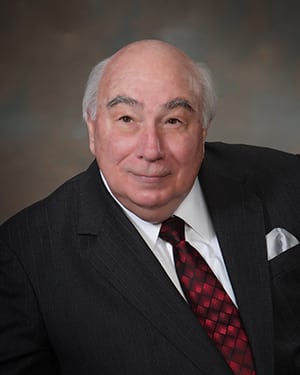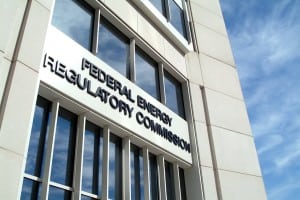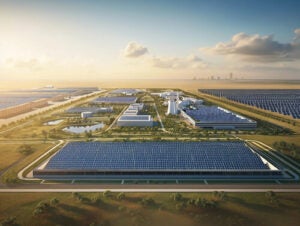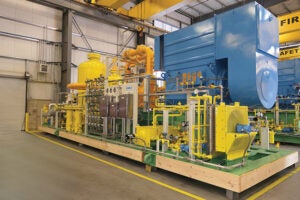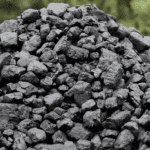Although optimistic about the future of the coal industry under the Trump administration, Robert Murray, CEO of Murray Energy Corp., the largest underground coal mining company in the U.S., does not expect the president-elect to bring back coal mining jobs or spur new coal-fired power plant construction.
“I’ve asked President-elect Trump to temper his comments about bringing coal miners back and bringing coal back. It will not happen,” Murray told POWER during an exclusive interview. “The destruction that has happened is permanent.”
Can Trump Stop the Bleeding?
Murray (Figure 1) noted that prior to President Obama taking office, the percentage of U.S. power generated from coal-fired plants was much higher than today. In fact, coal accounted for more than 48.5% of net generation in 2007, according to the U.S. Energy Information Administration. Through the first nine months of 2016, only 29.9% of the county’s net generation was from coal. Murray doesn’t see that going up much in the future. His main hope is that Trump will stabilize things and provide more certainty for the industry.
“What we need to do is stop the destruction that has been ongoing,” Murray said.
And he is confident that Trump can do that by getting rid of subsidies for the wind and solar energy sectors, and by overturning regulations promulgated by the Obama administration.
“We need to get back to a level playing field in the electricity markets where a certain means of generating electric power is selected based on reliability to the grid and what is the lowest cost,” said Murray.
Cheap Coal = Cheap Power
According to Murray, coal is at the top of the list when it comes to producing reliable, low-cost electricity. He pointed out that electricity generated by natural gas, which has gained significant market share in the U.S. power sector in recent years, has historically cost about 15¢/kWh to produce. As the supply of natural gas increased, due to the combination of horizontal drilling and hydraulic fracturing of shale formations, the price of power generated by gas-fired plants decreased to between 4¢/kWh and 5¢/kWh, giving it a competitive advantage.
However, once Trump enters office, Murray expects liquefied natural gas (LNG) export terminals—the construction of which he believes has been obstructed by Obama—will get built. He also thinks pipelines will hit fewer roadblocks, which means gas will more easily find its way to regions of the country that need it. With those changes, he expects the price of natural gas to increase. But the price of coal, he said, will stay low, and that will give the advantage back to coal.
“[Utility CEOs] can count on the fact that coal will be there, and they need to go back to thinking about ‘How do I deliver the most reliable power at the lowest cost?’ ” Murray said. “And that’s by far coal. Not natural gas. Not renewables.”
CCS = No Coal
Murray doesn’t believe carbon capture and sequestration (CCS) will provide a remedy for what ails coal. He has a unique perspective on CCS, having helped build the Great Plains coal gasification plant in North Dakota. That plant is the largest carbon dioxide (CO2) capture project in the world, having captured and transported nearly 35 million metric tons of CO2 for geologic sequestration since 2000.
“Carbon sequestration is not practical. It is not economic. It’s a pseudonym for ‘no coal,’ ” Murray said.
However, Murray believes there is a place for more efficient conversion of coal into electricity. He mentioned the use of ultrasupercritical technology as one important improvement and suggested that other technologies would be developed over time.
But more than anything, Murray believes the new administration can deliver on promises made to the coal industry. With Trump, he said, certainty will be restored, and power companies can develop plans rather than reacting to government policies.
“I worked very hard to help [Trump] get elected,” Murray said, noting that he had received a personal call from the president-elect a few weeks after the election. “He told me to tell my miners that he had their backs—that he would keep his campaign promises.”
Murray believes it, but that doesn’t mean he’s hiring.
[Ed. note: To read more from POWER’s interview with Robert Murray and learn about unique coal marketing strategies Murray Energy has implemented in an effort to help coal-fired power plants stay competitive in the electricity markets, see the upcoming feature on coal contracts, which will be published in the February 2017 issue.]
—Aaron Larson, associate editor (@AaronL_Power, @POWERmagazine)


